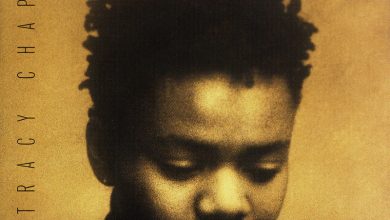A More Ethical Audience: On Bryan Singer’s Sexual Assault Allegations

The 91st Academy Awards are still three weeks away, yet the ranks of nominees are full of difficult controversies. First are the critiques against the one-dimensional, oddly feel-good story about racism in the 1960’s, “Green Book,” which is nominated for five Oscars. The film – written, directed, and produced by white people – became ahistorical, with a comfortable ending neatly wrapping up an uncomfortable subject. More recently, however, is the story come to light about the 1970’s band Queen biopic, “Bohemian Rhapsody,” nominated for five Oscars, including Best Picture. An article recently published in The Atlantic documents decades of rape and sexual assault allegations against the film’s director, Bryan Singer.
Though the most immediate effects are most evident because of the upcoming Oscars ceremony, or even the reception of “Bohemian Rhapsody” in general, this raises larger questions about the morality of consuming art by Singer at all.
The recent Atlantic article details the accounts of four survivors, some named and some unnamed, who were all young men either underaged or just over 18 when Singer made predatory advances on them. Singer would often manipulate them with unfulfilled promises of being in his films – notably the “X-Men” series – which he has piloted since the first film was released in 2000. According to these survivors, Singer and other executives in the entertainment industry funnel young, vulnerable boys into their social circle via extravagant, drug-filled parties. These parties also function as a kind of hunting ground for Singer and others to prey on these young men and take advantage of them sexually.
It is crucial to understand that these accusations are not new, though until now they have been whispered rather than spoken or shouted. In 2014 a man named Michael F Egan III opened a case against Singer, saying that the director had raped him fifteen years earlier when Egan was 17. Egan refused Singer’s settlement of 100,000 dollars, and his lawyer withdrew from the case. Later that year, Egan dismissed his claim against Singer.
However, much earlier cases against Singer coincide with Egan’s timeline of his own abuse. A civil case filed by “X-Men” actor Alexander Burton in 2000 claimed the executives of DEN (Digital Entertainment Network, a failed precursor to YouTube) and Singer, an investor in the company, had sexually and physically assaulted him in the previous years. Various claims against DEN cite the company as a trap to lure in boys and young men for the executives to prey on. Since then, Marc Collins-Rector, a founder of DEN and friend of Singer, has been found guilty of various crimes involving sexual content or acts with minors (including crossing a state border with a minor with the intention of having sex, and possession of child pornography) and is now a registered sex offender.
Singer has often been enraged at these accusations. However, Singer, an openly bisexual man, now claims that these accusations are part of a decades-long homophobic smear campaign. This is an uncomfortable rebuttal, to say the least, considering its odd parallel to Kevin Spacey’s response to sexual assault allegations in late 2017 in which he came out as gay. Both men have had multiple victims speak out against their abuse across a timeline of decades, but have attempted to distract the conversation by victimizing themselves.They use their gay identity as a shield for their abuses, which hurts the LGBT community at large; their words reinforce the violent homophobic ideology that gay men are inherently predatory.
This new wave of accusations against Singer is riding out the momentum of Tarana Burke’s #MeToo movement that has purged Hollywood of the likes of Harvey Weinstein. Of course, there are many powerful white male abusers left in the film industry who feel untouchable -– Woody Allen, Roman Polanski, Johnny Depp.
Bryan Singer has been untouchable for nearly 18 years now, since the initial case filed against him in 2000, and has been delivered opportunity after super-powered opportunity: from nearly the entire “X-Men” franchise to 2005’s “Superman Returns.” At 53, he has had a full career in the nearly thirty years since his first full-length film was released back in 1993.
And now we find ourselves in 2019, where his most recent film is a strong Oscar contender.
The question that begs to be asked in the case of Singer and “Bohemian Rhapsody” is one that has been debated hotly since the #MeToo movement went viral in 2017: Can we still watch films by known abusers? Can we truly separate the art from the artist?
As Hollywood (at least superficially) attempts to implement a more deliberate morality in their production of art, a similar responsibility also falls on the audience. Despite the glorious triumphs and losses we are able to escape into at the hands of Hollywood’s creators, the glitzy, star-studded industry is…just that. An industry. A business.
Businesses will, ultimately, make decisions that will generate more profit, ethical or not. JK Rowling and director David Yates defended keeping Johnny Depp in the Harry Potter-inspired “Fantastic Beasts” franchise even after he was accused of abusing his now ex-wife, Amber Heard in 2016. Whatever excuses the pair gave, the real answer was obvious: Depp has an illustrious career, and was assumed to be a guarantee for a box office hit.
Facing no professional repercussions for his abuse, Depp was accused in 2018 of assaulting a manager on the set of his film released later last year, “City of Lies.” According to the report, Depp had been drinking all day, and screamed obscenities at the manager, punching him twice in the ribs.
Similarly, despite the 2000 and 2014 cases against Singer, he continued to helm the “X-Men” franchise because of its success over a decade before Marvel Studios’ 2008 hit “Iron Man” that launched the Marvel Cinematic Universe and changed the face of superhero films forever.
The other motivator in Hollywood besides money is prestige, which can often lead to more money. Director Roman Polanski was found guilty of the rape of a 13 year old girl in 1977 and has been a fugitive from the United States ever since, but he has continued to direct films and participate in the Academy from abroad. Polanski won the Oscar for Best Director in 2003 to a standing ovation from many in attendance. It was not until 2018 that the Academy removed Polanski from their ranks, no doubt from the external pressure of the #MeToo movement.It would not be difficult to call Polanski’s removal from the Academy simple lip service, especially since Casey Affleck, accused of sexual harassment, won the Oscar for Best Actor the year before, and the Academy has remained tight-lipped on the matter since.
With this history, there are grounds to understand why Singer’s accusations might be ignored in favor of indulging the nominations for “Bohemian Rhapsody.” The film is a box office hit, garnering over 800 million dollars worldwide. It has already won Golden Globes and SAG Awards despite mixed critic reviews and a messy production process. These problems during production all centered around Singer: there were verbal altercations with cast and crew, and some days he simply did not show up to set at all. Just a few weeks away from wrapping filming, Singer was fired from the project.
However, Singer has still received full director’s credit, and it was recently announced that he stands to make 40 million dollars from the film. And while Singer is not nominated for Best Director of “Bohemian Rhapsody,” his name is still attached to every award it wins. For this reason, the film’s nomination was revoked from the GLAAD Media Awards in the Outstanding Film — Wide Release category.
Their statement on the matter reads, “GLAAD urges the media and the industry at large to not gloss over the fact that survivors of sexual assault should be put first.”
Last November, I wrote an article praising “Bohemian Rhapsody” and its portrayal of the enigmatic lead singer of the band, Freddie Mercury, his sexuality, and AIDS diagnosis. Though the writing of this article predated The Atlantic’s exposure of the allegations against Singer, as previously discussed, the allegations of Singer’s assaults were still available to the public, though I was at the time unaware of them. I hope that this article also functions as an apology.
As much as I enjoyed the film, I cannot support it anymore. Not while an abuser stands to profit and accrue further fame from it. That is my answer to the question, “Can we separate the art from the artist?”
No, we can’t.
Because their victims can’t. Because as long as we help keep them in power, we help create an environment for predators to prey on new victims. As consumers of media, our money and our interests are our voice against rapists and abusers in the entertainment industry. While Hollywood and other media giants have a responsibility to the safety of their employees and the quality of the products they deliver, we also have a responsibility to consciously decide what media we consume and support every day.
The classic counterpoint to cases of assault against any public personality is: What if the accused is not guilty and you are ruining an innocent life?
Less than a year after admitting his guilt in sexually harassing female colleagues, comedian Louis C.K. is performing again, with new insensitive and bigoted material. Roman Polanski was 84 years old before being removed from the Academy. R. Kelly has continued to make music for decades despite the public accusations of rape against him since the 1990’s.
Hypothetically, if Singer is not guilty, his life and career have not been ruined in the slightest. Amidst these allegations, he is still slated to direct a reboot of “Red Sonja” later this year. The CEO of Millennium Films, the company producing “Red Sonja” cited the financial success of “Bohemian Rhapsody” when saying that he is “very comfortable with this decision” to keep Singer at the helm of the project, making it clear that monetary gain is his highest priority.
It has never been a worry that powerful abusers in the entertainment industry may suffer too many consequences, but rather if they will suffer any at all.
The people whose lives have been irrevocably altered are the survivors of sexual assault. Too many of these survivors have to endure the public work, success, and celebration of their abusers.
In The Atlantic article, one of Singer’s accusers, Cesar Sanchez-Guzman, explains how deeply Singer believes in his ability to get away with what he wants, “because money talks.” Sanchez-Guzman confessed that after his assault, Singer said to him with a cocky, powerful smile that “‘Nobody is going to believe you.’”
We believe you, Cesar.




